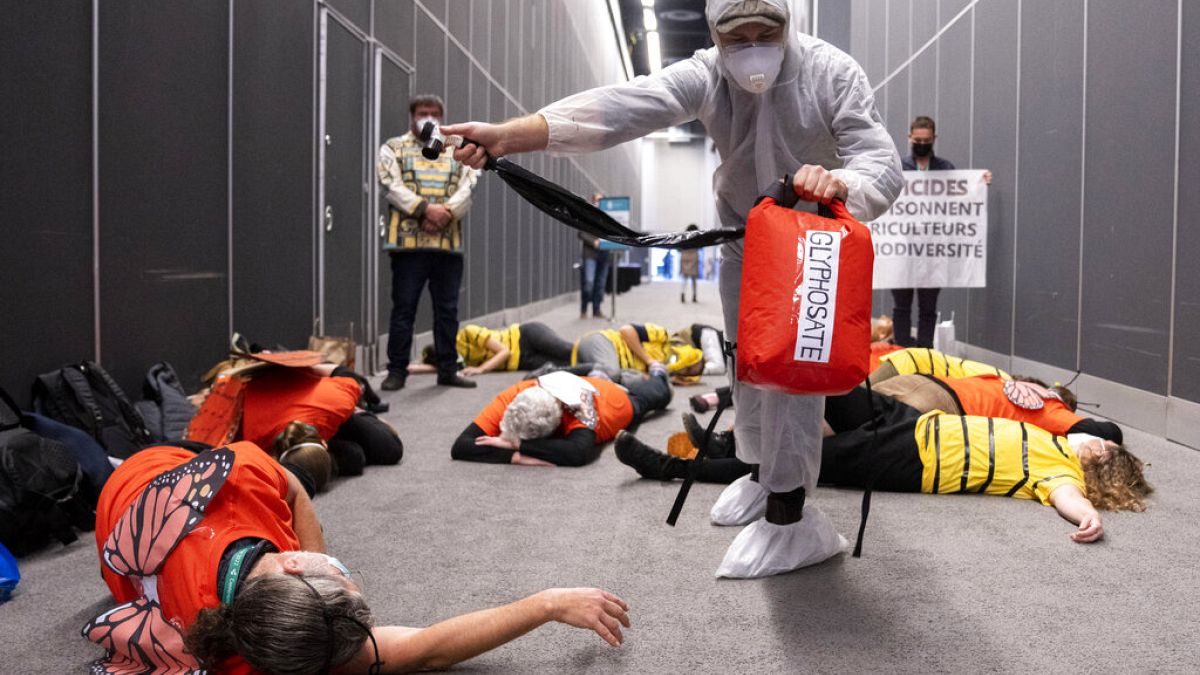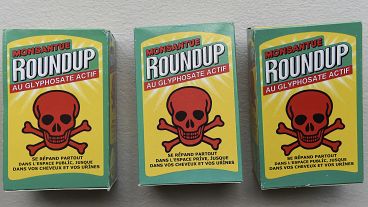Environmental groups say EU executive’s renewal decision is at odds with the latest scientific evidence.
A consortium of six NGOs is challenging the European Commission's ten-year extension of its approval of glyphosate, claiming the decision fails to comply with EU law, a spokesperson for Pesticide Action Network (PAN) Europe said during a press conference in Brussels today (January 25).
PAN Europe, ClientEarth EU, Générations Futures, GLOBAL 2000, PAN Germany and PAN Netherlands submitted their case to the EU executive on 24 January citing several recent scientific studies that were “overlooked during the [glyphosate] approval process”, the spokesperson said.
The group claims these studies revealed the notorious weedkiller increases risk of cancer and insect mortality rates, and impacts significantly on brain and gene function.
Last November, the commission renewed its approval of glyphosate use based on safety assessments by the European Food Safety Authority (EFSA) and European Chemicals Agency (ECHA) . However, both EU agencies are equally blamed by the NGOs for “not having paid sufficient heed to the science”.
In the case of EFSA, the agency omitted data on toxicity of glyphosate for insects — which, the group claims, industry data suggests causes 100% mortality in some cases— in its peer review, the NGOs alleged.
“The Commission has acted against EU law on approval of pesticides and the precautionary principle, re-approving glyphosate despite evidence that the substance can cause harm to humans, animals and the environment,” according to a PAN Europe statement.
The NGOs claimed the EU assessment “systematically discards non-industry studies”, notably those from academia, which the group said often gave greater insights on the toxicity of pesticides compared to industry studies.
Cancer risk assessments and studies on how glyphosate can impact human organs were also dismissed, according to the NGOs. The group claimed that the impact of glyphosate on the brain and nervous system “has not been properly assessed”.
Despite the legal obligation to use the most recent and reliable science, the consortium also claimed industry studies omitted key data on several occasions, with EU authorities turning a blind eye, effectively compromising an accurate and science-based assessment of the pesticide.
Autism spectrum disorders, Parkinson’s’ disease, amyotrophic lateral sclerosis, microbiome and the impact on gut-brain are some of the major shortcomings spotted by public scientific literature and disregarded by the EU, Angeliki Lysimachou, Head of Science and Policy at PAN Europe told the press conference.
"The European Commission re-authorizing glyphosate for 10 years, with the complicity of France and other member states, is a human, environmental and democratic catastrophe,” said MEP Manon Aubry (France/The Left), adding the commission “has listened to lobbies and disregarded countless proofs of severe toxicity”.
“It neglects the opposition expressed by 70% of Europeans against glyphosate and European laws on hazardous substances,” said Aubry.
Stefan de Keersmaecker, European Commission’s spokesperson for the European Green Deal and for public health, food safety, said the decision was based on “robust science and evidence” from the ECHA and the EFSA, and said the EU executive “will respond” the NGOs’ legal challenge, following a “thorough analysis of the claims”.
“The Commission always stands ready to review and, if necessary, further improve the EU's processes and rules in the area of food safety,” Keersmaecker told Euronews.
The EU executive needs to give an official response to the environmental consortium by the end of June.



